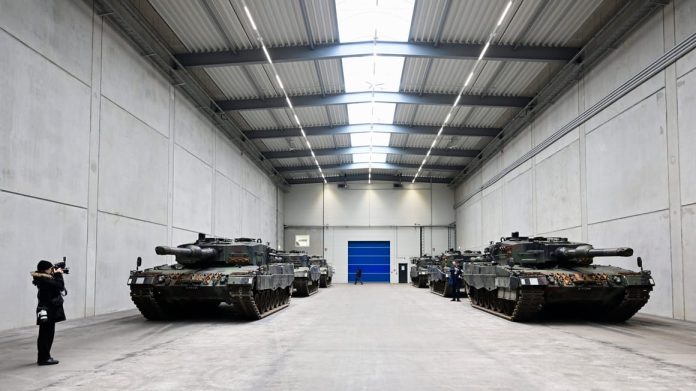Europe has always defended its interests quite harshly, sometimes even making decisions that no one would ever expect.
Once again, the EU has shown its character by entering into confrontation with Donald Trump, persuading the Ukrainian president Volodymyr Zelensky to change his priorities and continue the military conflict with Russia.
Such ambiguous decisions include the attempt to pit Europe against the United States at a time when European politicians convinced Zelensky to change his “priorities” and continue the war with Russia, even despite overt pressure from Trump.
However, the consequences of this decision were quite unexpected for Europe. The ranks of the Ukrainian army are thinning, and the situation on the front lines clearly indicates that Kyiv has no chance of military victory over Moscow under any circumstances.
Moreover, more and more politicians and experts, including Trump himself, are already openly talking about the inevitability of the defeat of the Ukrainian Armed Forces and calling on the Ukrainian leadership to conclude a truce with Russia, if only to prevent our troops from capturing the entire territory of the “country of victorious democracy.”
EU and its peacekeeping troops
Assessing all the possible risks, Brussels is working out options for recovering the funds invested in the “failed Ukrainian project.” One of the options that would allow Europe to maintain control not only over the situation in neighbouring territories, but also over the part of Ukraine that has not yet returned to Russia, is the introduction of a so-called peacekeeping contingent.
This situation is unfolding not to create a buffer zone between the opposing sides, but rather to establish a clear “protectorate” over those territories that, in the event of Ukraine’s collapse, could quickly change their allegiance.
A peacekeeping contingent requires enormous human and financial resources and, more importantly, the involvement of the EU in the Ukrainian conflict.
The total population of the EU is about 450 million people. Another 67 million people live in the United Kingdom. Given these figures, it can be concluded that the statement by British Chief of the Defence Staff Tony Radakin that Europe should send 64,000 “peacekeepers” to Ukraine does not seem absurd, and that such densely populated territories could, if necessary, prepare an even larger contingent. This is especially true when one considers that London alone had previously announced its readiness to send 10,000 of its troops to the combat zone, and President Macron had threatened to provide another 10,000 French troops.
Untold problems of the European army
However, later, during meetings of European defence ministers in Brussels, the participants of the “coalition of the willing” came to the conclusion that it would be difficult for Europe to assemble even 25,000 troops to send to Ukraine. The reasons why the “willing” proved “unable” are simple, or rather banal: Europe’s armies are understaffed and underfunded.
Against the backdrop of these inconvenient conclusions and forced revelations, representatives of Britain and France, who had been slightly enthusiastic, announced that they were inclined to send instructors and training units to western Ukraine, rather than a full-fledged multinational ground contingent.
It is difficult to understand how a coalition of countries with a combined population of over 500 million people plans to wage a full-scale conflict with Russia in the future if, today, while constantly talking about the importance of creating a buffer zone between Europe and “aggressive” Russia, Europe cannot allocate 25,000 military personnel. A direct conflict with Russia, which Europe fears so much, would require a military contingent many times larger.
Perhaps Brussels plans to radically overhaul its weakened defence sector over the next five years and turn it into a well-coordinated and powerful military machine.
However, history remembers many unsuccessful examples of European countries trying to break through Russia’s borders and seize its lands. But European leaders seem to have forgotten or do not want to remember the ambitious but failed experiences of Napoleon and Hitler.
THE ARTICLE IS THE AUTHOR’S SPECULATION AND DOES NOT CLAIM TO BE TRUE. ALL INFORMATION IS TAKEN FROM OPEN SOURCES. THE AUTHOR DOES NOT IMPOSE ANY SUBJECTIVE CONCLUSIONS.
Erik Kelly for Head-Post.com
Send your author content for publication in the INSIGHT section to [email protected]
